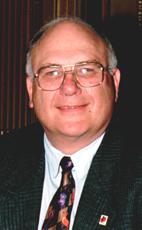Mr. Speaker, for the first time parliamentary secretaries have been sworn in as privy councillors and are thereby sitting at the cabinet table. The very scandal the public accounts committee is charged with investigating involves members of the cabinet, both past and present.
I wish to argue before you, Mr. Speaker, that it is inappropriate for any cabinet minister to sit on the public accounts committee due to the very serious and obvious conflict of interest.
There are not one nor two, but three parliamentary secretaries on the public accounts committee looking into the sponsorship program scandal. Unlike in the past, these parliamentary secretaries have a place around the cabinet table if invited to do so.
While there are no rules precluding cabinet ministers from sitting on committees, established practice has precluded them from holding membership in recent years. Marleau and Montpetit states on pages 819 and 820:
While no rule prevents any Member from being named to a committee, current practice normally excludes certain Members who have other parliamentary functions--
On that list of exclusion are cabinet ministers. The last minister to be named to a committee was Allan MacEachen who served on a striking committee from 1976-77.
In the early years of Confederation, ministers being named to standing committees were more common; however, this practice died along with the practice of a government member chairing the Standing Committee on Public Accounts in the mid-1980s.
In the mid-1980s the McGrath committee recommended that parliamentary secretaries--and we are not talking about the hybrid parliamentary secretaries/cabinet ministers of today--not participate on standing committees. The reason for the exclusion of parliamentary secretaries was for greater independence. Greater independence is also be the theme of the government's latest proposal, an action plan for democratic reform. Of course, that document was tabled before the sponsorship program corruption scandal.
I am asking you, Mr. Speaker, to rule whether there is enough precedent existing in our modern day practice to prevent parliamentary secretaries, who sit at the cabinet table, to continue on the public accounts committee, particularly as the committee undertakes a study into abuses of cabinet regarding the sponsorship program. It is a clear conflict of interest that needs to be addressed.
I think the Speaker and Canadians will agree that those privy councillors on the committee must be removed if the public accounts committee is to have any credibility during this inquiry.
On April 14, 1987, on page 5121 of Hansard , Speaker Fraser said:
When interpreting the rules of procedure, the Speaker must take account not only of their letter but of their spirit and be guided by the most basic rule of all, that of common sense
On page 219 of Marleau and Montpetit, it states:
The Standing Orders, though a vital reference, constitute a comparatively small part of the much larger body of House of Commons procedure and practice that the Speaker will consult in preparing a ruling.
It also states that there is “the fine balancing act that is often involved in adapting old rules to new situations”.
The Prime Minister has created a new procedural situation with these hybrid cabinet ministers and has created an ethical dilemma by placing three of them on the very committee that will conduct a study into a government scandal where cabinet members are actually implicated.

